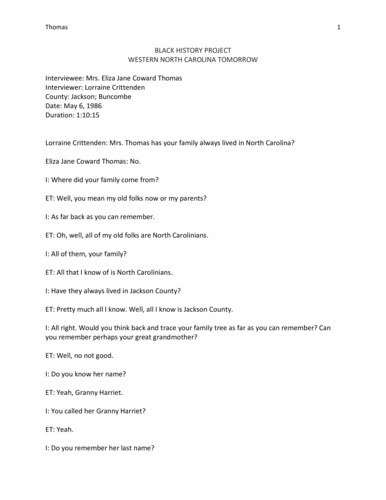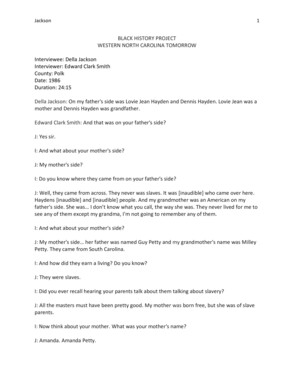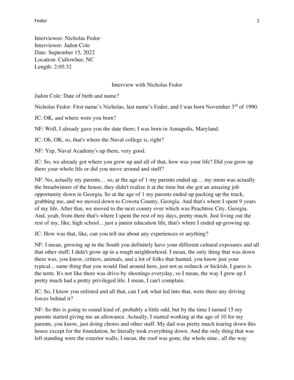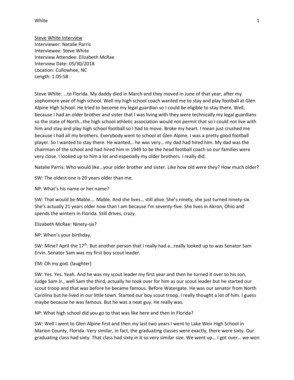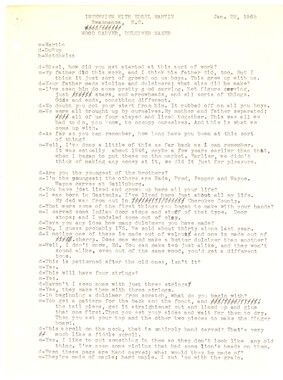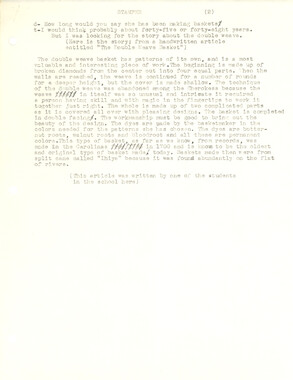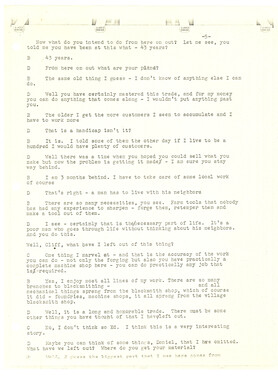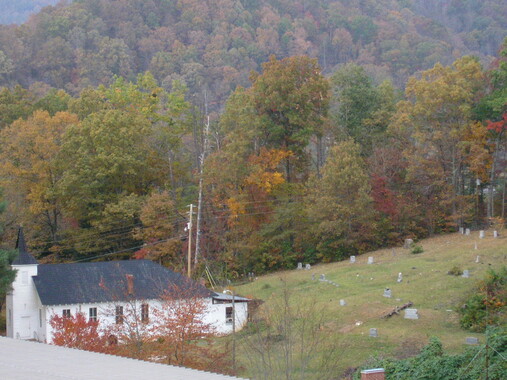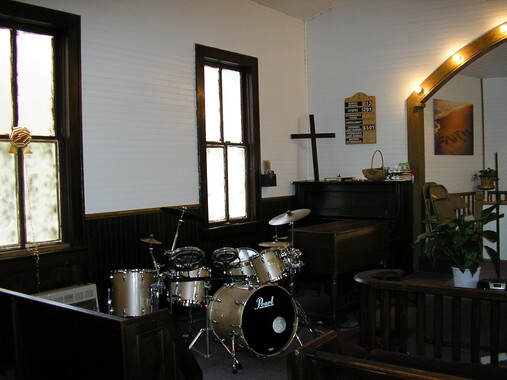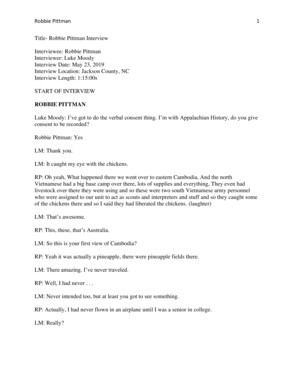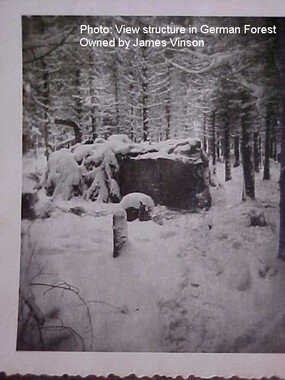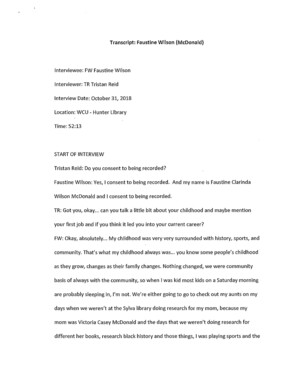Western Carolina University (21)
View all
- Canton Champion Fibre Company (2308)
- Cherokee Traditions (291)
- Civil War in Southern Appalachia (165)
- Craft Revival (1942)
- George Masa Collection (137)
- Great Smoky Mountains - A Park for America (2900)
- Highlights from Western Carolina University (422)
- Horace Kephart (941)
- Journeys Through Jackson (159)
- LGBTQIA+ Archive of Jackson County (85)
- Oral Histories of Western North Carolina (314)
- Picturing Appalachia (6797)
- Stories of Mountain Folk (413)
- Travel Western North Carolina (153)
- Western Carolina University Fine Art Museum Vitreograph Collection (129)
- Western Carolina University Herbarium (92)
- Western Carolina University: Making Memories (738)
- Western Carolina University Publications (2491)
- Western Carolina University Restricted Electronic Theses and Dissertations (146)
- Western North Carolina Regional Maps (71)
- World War II in Southern Appalachia (131)
University of North Carolina Asheville (6)
View all
- Allanstand Cottage Industries (62)
- Appalachian National Park Association (53)
- Bennett, Kelly, 1890-1974 (1463)
- Berry, Walter (76)
- Brasstown Carvers (40)
- Carver, George Washington, 1864?-1943 (26)
- Cathey, Joseph, 1803-1874 (1)
- Champion Fibre Company (233)
- Champion Paper and Fibre Company (297)
- Cherokee Indian Fair Association (16)
- Cherokee Language Program (22)
- Crowe, Amanda (40)
- Edmonston, Thomas Benton, 1842-1907 (7)
- Ensley, A. L. (Abraham Lincoln), 1865-1948 (275)
- Fromer, Irving Rhodes, 1913-1994 (70)
- George Butz (BFS 1907) (46)
- Goodrich, Frances Louisa (120)
- Grant, George Alexander, 1891-1964 (96)
- Heard, Marian Gladys (60)
- Kephart, Calvin, 1883-1969 (15)
- Kephart, Horace, 1862-1931 (313)
- Kephart, Laura, 1862-1954 (39)
- Laney, Gideon Thomas, 1889-1976 (439)
- Masa, George, 1881-1933 (61)
- McElhinney, William Julian, 1896-1953 (44)
- Niggli, Josephina, 1910-1983 (10)
- North Carolina Park Commission (105)
- Osborne, Kezia Stradley (9)
- Owens, Samuel Robert, 1918-1995 (11)
- Penland Weavers and Potters (36)
- Roberts, Vivienne (15)
- Roth, Albert, 1890-1974 (142)
- Schenck, Carl Alwin, 1868-1955 (1)
- Sherrill's Photography Studio (2565)
- Southern Highland Handicraft Guild (127)
- Southern Highlanders, Inc. (71)
- Stalcup, Jesse Bryson (46)
- Stearns, I. K. (213)
- Thompson, James Edward, 1880-1976 (226)
- United States. Indian Arts and Crafts Board (130)
- USFS (683)
- Vance, Zebulon Baird, 1830-1894 (1)
- Weaver, Zebulon, 1872-1948 (58)
- Western Carolina College (230)
- Western Carolina Teachers College (282)
- Western Carolina University (2008)
- Western Carolina University. Mountain Heritage Center (18)
- Whitman, Walt, 1819-1892 (10)
- Wilburn, Hiram Coleman, 1880-1967 (73)
- Williams, Isadora (3)
- Cain, Doreyl Ammons (0)
- Crittenden, Lorraine (0)
- Rhodes, Judy (0)
- Smith, Edward Clark (0)
- Appalachian Region, Southern (2940)
- Asheville (N.C.) (1944)
- Avery County (N.C.) (26)
- Blount County (Tenn.) (195)
- Buncombe County (N.C.) (1680)
- Cherokee County (N.C.) (283)
- Clay County (N.C.) (556)
- Graham County (N.C.) (238)
- Great Smoky Mountains National Park (N.C. and Tenn.) (525)
- Haywood County (N.C.) (3571)
- Henderson County (N.C.) (70)
- Jackson County (N.C.) (4919)
- Knox County (Tenn.) (35)
- Knoxville (Tenn.) (13)
- Lake Santeetlah (N.C.) (10)
- Macon County (N.C.) (421)
- Madison County (N.C.) (216)
- McDowell County (N.C.) (39)
- Mitchell County (N.C.) (135)
- Polk County (N.C.) (35)
- Qualla Boundary (982)
- Rutherford County (N.C.) (78)
- Swain County (N.C.) (2185)
- Transylvania County (N.C.) (270)
- Watauga County (N.C.) (12)
- Waynesville (N.C.) (86)
- Yancey County (N.C.) (72)
- Aerial Photographs (3)
- Aerial Views (60)
- Albums (books) (4)
- Articles (1)
- Artifacts (object Genre) (228)
- Bibliographies (1)
- Biography (general Genre) (2)
- Cards (information Artifacts) (38)
- Clippings (information Artifacts) (191)
- Copybooks (instructional Materials) (3)
- Crafts (art Genres) (622)
- Depictions (visual Works) (21)
- Design Drawings (1)
- Drawings (visual Works) (185)
- Envelopes (73)
- Exhibitions (events) (1)
- Facsimiles (reproductions) (1)
- Fiction (general Genre) (4)
- Financial Records (12)
- Fliers (printed Matter) (67)
- Glass Plate Negatives (381)
- Guidebooks (2)
- Internegatives (10)
- Interviews (815)
- Land Surveys (102)
- Letters (correspondence) (1013)
- Manuscripts (documents) (618)
- Maps (documents) (177)
- Memorandums (25)
- Minutes (administrative Records) (59)
- Negatives (photographs) (6090)
- Newsletters (1290)
- Newspapers (2)
- Notebooks (8)
- Occupation Currency (1)
- Paintings (visual Works) (1)
- Pen And Ink Drawings (1)
- Periodicals (193)
- Personal Narratives (10)
- Photographs (12976)
- Plans (maps) (1)
- Poetry (5)
- Portraits (4568)
- Postcards (329)
- Programs (documents) (181)
- Publications (documents) (2443)
- Questionnaires (65)
- Relief Prints (26)
- Sayings (literary Genre) (1)
- Scrapbooks (282)
- Sheet Music (2)
- Slides (photographs) (402)
- Songs (musical Compositions) (2)
- Sound Recordings (796)
- Specimens (92)
- Speeches (documents) (18)
- Tintypes (photographs) (8)
- Transcripts (322)
- Video Recordings (physical Artifacts) (23)
- Text Messages (0)
- A.L. Ensley Collection (275)
- Appalachian Industrial School Records (7)
- Appalachian National Park Association Records (336)
- Axley-Meroney Collection (2)
- Bayard Wootten Photograph Collection (20)
- Bethel Rural Community Organization Collection (7)
- Blumer Collection (5)
- C.W. Slagle Collection (20)
- Canton Area Historical Museum (2110)
- Carlos C. Campbell Collection (462)
- Cataloochee History Project (64)
- Cherokee Studies Collection (4)
- Daisy Dame Photograph Album (5)
- Daniel Boone VI Collection (1)
- Doris Ulmann Photograph Collection (112)
- Elizabeth H. Lasley Collection (1)
- Elizabeth Woolworth Szold Fleharty Collection (4)
- Frank Fry Collection (95)
- George Masa Collection (173)
- Gideon Laney Collection (452)
- Hazel Scarborough Collection (2)
- Hiram C. Wilburn Papers (28)
- Historic Photographs Collection (236)
- Horace Kephart Collection (861)
- Humbard Collection (33)
- Hunter and Weaver Families Collection (1)
- I. D. Blumenthal Collection (4)
- Isadora Williams Collection (4)
- Jesse Bryson Stalcup Collection (47)
- Jim Thompson Collection (224)
- John B. Battle Collection (7)
- John C. Campbell Folk School Records (80)
- John Parris Collection (6)
- Judaculla Rock project (2)
- Kelly Bennett Collection (1482)
- Love Family Papers (11)
- Major Wiley Parris Civil War Letters (3)
- Map Collection (12)
- McFee-Misemer Civil War Letters (34)
- Mountain Heritage Center Collection (4)
- Norburn - Robertson - Thomson Families Collection (44)
- Pauline Hood Collection (7)
- Pre-Guild Collection (2)
- Qualla Arts and Crafts Mutual Collection (12)
- R.A. Romanes Collection (681)
- Rosser H. Taylor Collection (1)
- Samuel Robert Owens Collection (94)
- Sara Madison Collection (144)
- Sherrill Studio Photo Collection (2558)
- Smoky Mountains Hiking Club Collection (616)
- Stories of Mountain Folk - Radio Programs (374)
- The Reporter, Western Carolina University (510)
- Venoy and Elizabeth Reed Collection (16)
- WCU Gender and Sexuality Oral History Project (32)
- WCU Mountain Heritage Center Oral Histories (25)
- WCU Oral History Collection - Mountain People, Mountain Lives (71)
- WCU Students Newspapers Collection (1923)
- Western North Carolina Tomorrow Black Oral History Project (69)
- William Williams Stringfield Collection (2)
- Zebulon Weaver Collection (109)
- African Americans (390)
- Appalachian Trail (35)
- Artisans (521)
- Cherokee art (84)
- Cherokee artists -- North Carolina (10)
- Cherokee language (21)
- Cherokee pottery (101)
- Cherokee women (208)
- Church buildings (190)
- Civilian Conservation Corps (U.S.) (111)
- College student newspapers and periodicals (2012)
- Dams (108)
- Dance (1023)
- Education (222)
- Floods (61)
- Folk music (1015)
- Forced removal, 1813-1903 (2)
- Forest conservation (220)
- Forests and forestry (1197)
- Gender nonconformity (4)
- Great Smoky Mountains National Park (N.C. and Tenn.) (181)
- Hunting (46)
- Landscape photography (25)
- Logging (119)
- Maps (83)
- Mines and mineral resources (9)
- North Carolina -- Maps (18)
- Paper industry (38)
- Postcards (255)
- Pottery (135)
- Railroad trains (72)
- Rural electrification -- North Carolina, Western (3)
- School integration -- Southern States (2)
- Segregation -- North Carolina, Western (5)
- Slavery (5)
- Sports (452)
- Storytelling (243)
- Waterfalls -- Great Smoky Mountains (N.C. and Tenn.) (66)
- Weaving -- Appalachian Region, Southern (280)
- Wood-carving -- Appalachian Region, Southern (328)
- World War, 1939-1945 (173)
Interview with Eliza Jane Coward Thomas
Item
Item’s are ‘child’ level descriptions to ‘parent’ objects, (e.g. one page of a whole book).
-
-
Thomas 1 BLACK HISTORY PROJECT WESTERN NORTH CAROLINA TOMORROW Interviewee: Mrs. Eliza Jane Coward Thomas Interviewer: Lorraine Crittenden County: Jackson; Buncombe Date: May 6, 1986 Duration: 1:10:15 Lorraine Crittenden: Mrs. Thomas has your family always lived in North Carolina? Eliza Jane Coward Thomas: No. I: Where did your family come from? ET: Well, you mean my old folks now or my parents? I: As far back as you can remember. ET: Oh, well, all of my old folks are North Carolinians. I: All of them, your family? ET: All that I know of is North Carolinians. I: Have they always lived in Jackson County? ET: Pretty much all I know. Well, all I know is Jackson County. I: All right. Would you think back and trace your family tree as far as you can remember? Can you remember perhaps your great grandmother? ET: Well, no not good. I: Do you know her name? ET: Yeah, Granny Harriet. I: You called her Granny Harriet? ET: Yeah. I: Do you remember her last name? Thomas 2 ET: She went in Rogers. I: Rogers? ET: Yeah. I: Was she from Jackson County also? ET: Yeah. I: Was she a slave? ET: Yeah, just like grandpa. I: Do you know who her owner was? ET: Some of the Rogers’. The white Rogers. I: Do you remember your great-grandfather, your great-grandmother's husband? ET: I never heard of grandma ever having a husband. I: O.K. What about your grandmother? ET: Oh, now that's who I'm named after. Eliza Jane. I: What was her name, her complete name? ET: She was. My grandmother was named, Eliza Jane Rogers. I: Now, was she a slave? ET: No. That was Granny Harriet's daughter. I: So, she was not a slave? ET: No. I: All right, do you remember your grandfather's name? ET: On my, you mean her husband's? Oh, Yes. Alfred Coward. I: Alfred Coward? Thomas 3 ET: Yes. I: Was he a black man? ET: No, that's the one I was telling you was half white. His old master was his daddy. I: Oh, he's half white? ET: Yeah. I: His master was a Coward? ET: Yeah. I: Do you remember his first name? ET: Nathan. I: Nathan Coward? ET: Yeah. I: Very good. Now, is that on your mother's side? ET: Mother side. That's my granddaddy. I: Do you remember your grandparents on your mother’s side? ET: Well, I can remember grandpa. I: What was his name? ET: Bill Moore. I: Bill Moore? ET: Yeah. Grandmother was named Susan Rattler. I: Rattler? Now, Rattler sounds like an Indian name. ET: She was a Black Hawk Indian. I: She was a Black Hawk Indian? Thomas 4 ET: That’s right. I: Now, where did they live? ET: That’s the ones I was telling you lived out there in Cherokee and out in there you know. I: Now say the word again? ET: That's Cherokee county. I: It's in Cherokee county? ET: Yeah. I: Is in Cherokee County? ET: Yeah. Murphy and Andrew is Cherokee County. I: All right. So, that’s where your mother’s parents were from? ET: Yours a slave. I: Right. ET: Yeah, that's where they originated from. I: What do you remember about your grandparents? How did they make a living? ET: Oh. I: On your father's side. ET: Well, I wouldn't remember because my grandmother died early. I wasn't you know, I might've not been born because I just know that's who it was. I: You didn't ever hear anyone say how they made a living? ET: No, but I think my grandma worked for some white folks. You know how it was then. Now. And grandpa I remember he worked for. I: Now which grandpa are we talking about? ET: Talking about my mother’s father. Thomas 5 I: That would be? ET: Bill Moore. I: Bill Moore. All right. Now, what did he do for a living? ET: Well, now when I knew grandpa, he was a running what you call a tram car from up there at the Rock to down to Dillsboro. I: Now where is Hard Rock? ET: Hog Rock. I: Hog Rock? Where is that? ET: Well, that's up above Cullowhee up in there. I: Now, when you say tram are you referring to train? ET: No. Tram cars. I: What's that? ET: Tom can you tell you her? It's a thing that runs on wheels and track. They ride it you know. No, I don't think they do. That’s like on a railroad. I: Right. ET: I think they just run it kind of like. Tom what is a tram car? How do you run them. He don’t know because he don't remember as good as I do. I: All right but now this tram car ran from Cullowhee to Dillsboro? ET: Dillsboro. I: Now, what was transported on this car? ET: Clay. I: Clay? ET: Umh. Thomas 6 I: For building? ET: No. They tell me that clay is white. They tell me they made china dishes out of it. That’s what I heard. I: Do you know was there a mine or something? ET: Yeah, there was a mine up there. I: That the clay was dug from? ET: Yeah. I: Do you think your grandpa just drove it or if he worked in the mine? ET: No, he drove the car. I: But he didn't work in the mine? ET: No, because sometimes I know, grandpa take me with him. I: can you describe this tram for me? ET: Yes, it's just a big old thing you know like a box car only it's not as big as a box car. You know. It's full of clay and he drive it. I think it must've had, you know they driving it like they would a car. I believe. But I know these white folks know what it is. A tram car they call it. I: And you would go with him sometime? ET: Yeah, he'd take me with him sometime. I: Was that fun? ET: Ummh. Oh, yeah. You know I always crazy about my old parents. I: So, this was an exciting thing for you as a young girl? ET: That's right. I: What else do you remember about your grandpa Moore? ET: Well, grandpa was half Colored and half Indian. He was half Blackhawk. I: Half Blackhawk and half colored? Thomas 7 ET: Ummh. I: And he came down there from [inaudible]? ET: I don't know whether he was living in [inaudible] or not. They lived different places. You know. sometimes I think when grandpa died he died in Franklin. When grandma passed, I think they say grandma passed in Acorn I: Acorn? ET: Yeah, that's a place between Franklin and Andrews. I: Between Franklin and Andrews. ET: Unmh. Yeah. I: What else can you tell me about your grandparents? ET: Well, that’s about all I know about them. That’s just what my aunts told me, my momma and aunt Lucy. I: But you had the opportunity to stay with your grandfather sometimes? ET: My grandpa stayed with us when he was running the tram car. I: Where were you living? ET: Down here at Dillsboro. I: Now, was driving the tram one of the better jobs during that time? ET: Yes, it was. Driving the jobs and getting out that clay were the best jobs because there wasn't nothing else to do but farming. I: So, he had a better job than most of the people? ET: No, there were others drove too. I: Those who worked on the tram made more money? ET: I reckon. Then they might've made more than those that dug it out but it looks like the ones that dug it out should have been the ones. But we wouldn't know that. Who got the most. Thomas 8 I: What else do you remember about your grandpa? ET: That’s about all. He would carry me with him sometimes. I: Well, what about Grandpa Coward? ET: Oh, Grandpa Coward, he worked for the white folks on the farm all the time. I: Now, was his father? ET: Now, I don't know his father. I don't know who grandpa's. I: But Coward is a white name in this part of the country. ET: Yeah, well, uncle Nathan Coward, a white man was my grandfather's daddy. I: So, Nathan Coward was you grandfather's daddy? ET: Yeah. I: Now, is this a well-known fact? ET: That's what he said. Every time they had a birthday or a dinner or anything grandpa sat at the head of the table and blessed it. So, they didn't deny it. I: They didn't deny that he was one of them? ET: No. I: Now what did he do for a living? ET: Worked you know like I said on the farm. I: He worked on the farm? ET: There wasn't nothing else to do around here you know. I: Did he have his own farm? ET: No, he worked for different people, the Roger's and you know and like that. Pam Brown. I: Pam Brown? Thomas 9 ET: Yeah, they had farms you know. That's all colored folks up in there could do was work on the farm. Because I hoed corn a many a day. I: Now when you say. ET: Bryson, we use to hoe corn down there, us youngings and I: Let’s pick up with, I want you to tell me where your grandpa lived and what kind of house and all that stuff. ET: Grandpa lived. I don't know. I couldn't tell you that place. I know where it's at but like you’re going to Cullowhee. When you go up like you’re going to Long Branch. Grandpa you cut off there and go up through there to grandpa's house. I couldn't tell you exactly where that was. I know I go there. You know and all but I wouldn't know. I: But it’s somewhere near Long Branch? ET: Oh, yeah. Yeah. Going on up towards Long Branch. I: Did he raise the food for his family? ET: Oh, yeah. He had plenty of food. Us youngings would go and pick beans and peas and thrash them out. I: You didn't have a thrashing machine, did you? ET: Yeah. Their own thrasher cane there every year. It didn't stay there you know but it go around all in the country. You know and thrash the people 's wheat. I: Oh! ET: Unmh but it wasn't none of theirs. It was the man that owned it that go around you know and thrash wheat for them. I: Was there a charge for thrashing wheat? ET: I guess so. Then they made their own Molasses. I: How did they make the Molasses? ET: Well, with cane. I: Cane sugar? Thomas 10 ET: I don't know what kind of cane it was. But anyway, they have a horse hitched to this thing and this horse would go around and around and as it grinded the juice out of the cane. Then that would run down to, they had a fire under this bar or thing and it had the tissues like this between it. It starts here then you know. When it got down to the last one it done made syrup. They had to keep the foam skimmed off. The women did that. I: Of course, these were put into jars. ET: They had barrels. I: Barrels? Wooden barrels? These the molasses was put in it? ET: Fill up them barrels. I: This lasted from one year to the next? ET: OH, yeah. I: Or was some of it sold? ET: Yeah, that's right. I: Was some of it sold to other people? ET: Well, I’ll tell you they were awful good, those white folks were that we knew. Now if you done anything or if they wanted you to cane and do something. They liable to give you meat after they paid you they know and some of then maybe a bucket of syrup or bucket of crout, pickle beans or whatever they have. They've always been that way here in Jackson County. Now they gonna see that you eat. I: Oh, so you go your wages and in addition to your wages you were given. ET: Yeah, they'd always give you something. I: Well, if your grandpa grew most of his food what about clothing. ET: Clothing. They all had clothes, nice clothes. Because you know at that time all of them could sew and stuff was cheap. You'd go buy a dress. I guess how many yards it took wouldn't be over 30 or 40 or 50 cents like that you know in those old days, 1883 then when I was born you know and from then on when I could remember what things was cheap, nothing like now. Of course, you know of things that's changed since you've been here. I: Certainly. Thomas 11 ET: Oh, yeah. I: You would get about three yards of material and make dresses. ET: Oh, yeah. They'd get. I: What about the men shirts and things like that, socks. ET: Well. Same of them could make the shirts and same buy their shirts. I know my grandpa liked to buy his. When they get ready now, worked all summer. The little money they had and what they'd have. They'd go down town at Sylva or down Dillsboro. You know what they'd buy? They'd buy their cloth, what they had to have. Then you know folks bought [inaudible] you know, [inaudible] gowns and little [inaudible] bloomers. Things like that. But they never did have to ever buy anything to eat but their coffee and sugar. I: What about the wheat flour was used for? ET: Make bread. I: For making bread? ET: Yeah. I: Did it work just as well for making cake? ET: Oh, yeah. I: Now, this was brown, brownish color. ET: No, no, they call that shorts. I: Shorts? ET: Flour would be white and if you wanted some shorts made then they'd be brown. I: What are shorts? ET: It's from wheat but it be brown. I: Well, what did you use that for? ET: They could make bread out of it. I: The shorts? Thomas 12 ET: Yeah. Brown bread. I: Brown bread? ET: Yeah. I: Then the white bread out of the other. ET: Yeah, they'd have brown bread and white bread and they even fix to make grits out of corn, some of it. Mr. Doc Bryson, you know the one I was telling you we worked for, he had what you call it? A corn mill. He made all that stuff. I: You got your lard and what not from your own homes? ET: They raised their own hogs, kill their own beefs and have us something. I: So, your grandparents had pork and beef? ET: Yeah, always had plenty to eat. I: Well, what do you think was scarce back then? ET: Nothing that I know of. I: Nothing was scarce? ET: No. Wasn't nothing. If you'd run out of anything and didn't have it, you know like some of them was my family, well, they just go down to, Mrs. Bryson's. You know they used a lot of meat and they'd call you and give you all them ham bones and ham on there you could cut off and fry. I: Sounds delicious. ET: Great big cabbage heads. Then they had what they called a big old hamburger cabbage. I: What’s that? ET: cabbage but their great big cabbage. I: Larger than what we buy in the store? ET: Oh, Lord yeah! These ain’t nothing. Just big old firm heads of cabbage. Yeah, and Lord, we'd be so glad we'd hear that old horn. You know they’d toot they horn. Toot, Toot. Here we go Thomas 13 going to dinner you know. They'd have that table would be just green beans, potatoes, cabbage, blackberry pie. Oh, I don't know what all wouldn't be on that table. I: Now, was this an everyday affair? ET: No, not every day. Long as you had to work and get that field of corn hoed out you know. I: Oh! ET: Maybe some time you get this field clean you got to go to another. I: What kind of food was served or reserved for special days like Christmas and Thanksgiving and Easter? ET: Oh, they'd have chicken, cake, and old folks have in tea cakes, you know things like that. Ginger bread, they called it. I: That served with Molasses? ET: Yeah. I like those soft ginger breads. I: Good, isn't it? ET: Yeah, I use to make it all the time. Yeah, it was really good. I: Mrs. Thomas, could you tell me what you remember about your parents? ET: You mean momma folks? I: Do you remember something about them? ET: No. Because as I say now, grandma Susan and Bill, those were my Mother’s parents, Bill Moore and grandma Susan Moore. Them was my Mother’s people. I: What else do you remember about them? ET: Just what I said. That all I remember much about it was when grandpa used to take me with him. I: On the tram? ET: On the tram car. I: Tell me what you remember about your parents. Thomas 14 ET: My parents? I: Yes, ma’am. ET: Well, my mother, I remember she worked hard all the time? I: Where did she work? ET: Well, she worked for different ones. You know then in them days why they take in a lot of washing and ironing. But she first started after my daddy died. They said her job then she went to Captain Enloe, down here at Dillsboro. I: Enloes? ET: Yeah, and that’s where my uncle went and got me and took me and raised me. I: All right. Let’s back up just a minute. You said that your father died. ET: Four months. I: Four months before you were born? ET: Yeah. I: Your mother was a Moore? ET: Yeah. I: Then she married again after your father died? ET: Yeah. I: She married? ET: Rev. Richie. I: What's his first name? ET: James. I: James Richie? ET: Umnh. Thomas 15 I: So, who was your mother living with while she was carrying you? ET: She was living at home up at Long Banch. I: On Long Branch? ET: Yeah, with Uncle Silas, her husband’s brother. I: So, then did she move down to Dillsboro or somewhere after you were born? ET: Yeah. She went to Dillsboro and to work for Captain Enloe. My uncle just told her and went down and told her says, Louise, you can't work and take care of this baby like you should. He says let me have her. I: Now, what uncle was this? ET: Si. I: Silas? What was his last name? ET: Coward. I: Silas Coward. ET: She told him all right Silas you take her then. So, Nan and Bob went and got me and he sent them the next day and they went and got me. I: Who’s Nan and Bob? ET: Well, Nan, was my aunt Sarah's daughter. Bob was my aunt Julie's daughter. I: So, they came and got you and took you back to Long Branch? ET: To Uncle Silas. I: To Uncle Silas? ET: That’s the one that raised me. I: He raised you? ET: Yeah. Thomas 16 I: Did he have a wife? ET: Yeah, Aunt Julie. I: Julie? ET: She was a Sanders. He married Julie Sanders. I: And they raised you? ET: Ummh. I: Until you grown? ET: Yeah, I was about 15 when he died. I: When your Uncle Silas died. Well, did you ever go to live with your mother? ET: Yeah, but I couldn't stay. She was mean to me. I: Oh, I'm sorry. ET: She had all these other children. So, I was just the dog. I: So, did you leave there? ET: Yeah. I: Where did you go? ET: I run away. I: You ran away? ET: Yeah. I: Where did you go to? ET: I lived in Asheville for sixty years. I: Asheville? For sixty years? ET: Ummh. Thomas 17 I: Now, what did you do when you went to Asheville? ET: Well, I lived nine years with Dr. E. B. Glenn until he died. He owned the Meriwether Hospital. Then after he died, I believe it was then I went to Frye but that was the last. I stayed twenty-five years with them. I: You lived in their home? ET: No, I didn't live in their home. I lived in Dr. Glenn's home because the children you know they had children. Every time I start to go home they'd go to hollering or screaming you know. I'd go on back and stay. I had a room in the house anyhow. So, I just turn on around and go back. Mrs. Glenn say, “Lord have mercy I don't know what I'm gonna do with these childs.” I said, “you ain't gonna do nothing. It’s me.” I'd go on up to my room. You know and here they’d go right with me, first thing they’d want is an old book. They wanted to get an old book you know for me to read to them. You know. Well, I 'd get in my bed and lay down. I said, “maybe I'll get this much rest.” They'd get in the bed with me. I 'd read to them and honey, crack of day and Willie was right in there in my room with that old book, in the bed they'd come. I said to myself, my God what am I gonna do. I went through that four years. I: Four years? ET: In the house. I: Do you remember the name of the book? ET: No. They had different kinds of funny books. I: And you read to them? ET: Yeah, and they just loved it. I: Well, how did you learn to read? ET: I went to the eighth and ninth grade. I: Where was this that you went? ET: Up Cullowhee. Not Cullowhee. No, it wasn't. It was over here what they call River View High. They sent me and Bess. Aunt Mary said we'd have to come down here. My cousin Bessie. I: So, you went to the eighth and ninth grade? ET: Ummh. Mrs. Josephine Moore and Professor Davis was the teacher then. Thomas 18 I: So, when you were fifteen, you left home and went to Asheville and you stayed with Dr. Glenn and his family for four years? ET: Nine. I: Nine years? how many children did he have? ET: Let’s see. William and Ana, Byron and Marian, four. I: Four children and you were with them all the time? ET: Oh, yeah. If I’d go home in my days, then I’d go home and here come them two blame youngings. I: Oh, they loved you, didn’t they? ET: Lord they loved me to death. We had a little old buggy [inaudible] you know and a little pony. I'd have to hitch up that pony and that horse and take them to town. The old [Albert] would have to go to. [laughing] He was the police dog. He had to go along and see about us. The police, one of them noticed. You know. He'd be standing out there. He'd say well you got your little crowd and your police with you. I'd say yes sir. Look like I’m gonna always have them, don't it? He'd say yeah, it do. Now when I stayed with Mrs. Frye, I stayed there twenty-five years. I: Now, is this also in Asheville? ET: Yeah. So, when she had. Now, I'm a [inaudible]. Mary Marshall, John Robert, William and Bruce and Robert, he died. She had four. Did you know that Bruce, well, he thought I was his momma. He didn’t care a thing about none of them no more when he was getting [kisses]. I: He didn't? ET: When he got married now, he was in Fayetteville N.C. Here come a big invitation: Aunt Liza come to the wedding. Well, I couldn't. I think I got that old invitation now. I couldn't go, but I said now what on earth, I’ll have to get him something. So, I went and I bought him some, a set of sheets and pillow cases. I got his sister to take them you know. They were going on their honeymoon. They said they were going to Cherokee on their honeymoon. Well, like they married today and the next day, I happen to look out and I said, “ain’t that Bruce? There come Bruce and his wife, Frances.” I said, “Bruce I thought you were on your wedding honeymoon.” She said he said he had to come by and see how Aunt Liza was a doing. I said I felt like smacking him good. Lord have mercy! He'd be out playing you know and everything with Edward and that Hill boy. They all played together you know. And if they didn't do like Bruce wanted to he'd go to hollering and screaming. I 'd have to go get him. You know. Wasn't a Lord’s thing the matter Thomas 19 with him. Just wanted to come and get me to pick him up so he could hug my neck. Oh, they loved me to death. I: It certainly sounds like it. Did you enjoy working for those two? ET: Oh, I loved them all. Her mother when she got sick, granny [Show]. She wouldn't let Mrs. Frye comb her hair. I had to do all of that. No, you ain't gonna comb my head. Liza will take care of me. I said what’s the matter can I hoodoo people or what? Yeah, but I just loved them all. They were just as sweet white folks. I didn't make no difference to no. Color don't make no difference to me. If I love you, I love you. I: That's the way it should be isn't it? ET: Ummh. I: Since you lived with these families so long did you ever sit at the dinner table with them? ET: No. I: Why not? ET: Oh, yes, I have. I have. I have. I: But while you were working for them, did you? ET: No. After I was quit working. I: After you quit work, you've been to their home as a guest? ET: Yeah. I: But while you were working there, you did not sit at the dinner table with them? ET: No, I didn't? I: What were you doing? When did you eat? ET: Working sometimes. Walking out cleaning. You know doing my work and reach and get me something and keep on. I like to get through because I had the big responsibility on me. Well, now Mrs. Glenn didn't know. Wouldn't even know she was gonna eat. I ordered all the groceries. I did all the cooking. I done all the house work and taking care of the children and press the Dr.'s pants so he's have you know before he go back to the hospital. I always kept his things fixed you know, so he'd be ready to go. If anybody went, I got sick and Birdie worked in Thomas 20 my place and Mrs. Glenn said he would through the bread down on the floor. Wasn't right. I hadn't made the bread you see. I: Oh, Dr. Glenn would through it on the floor because you hadn't made it? ET: That's right. He wouldn't eat their cooking. My sister and Birdie, no he didn't want it. It wasn't right. Now, when I went back he was as happy as he could be. But they certainly was nice to me because when I got sick while. They taken care of me. The children, they just loved me so much. When it came to house cleaning, I had all that to see after and so I had a friend girl. I'd always ask her to come and she'd come and house clean. Then, Mrs. Glenn would pay her. When I get my groceries and everything then Mr. Bradley would send me my bill. I 'd take the bill in there and give it to her and say Mrs. Glenn, I got to pay my grocery bill. She'd take it and look at it. She'd write me a check. I'd take that check and go down to Mr. Bradford’s on Broad street and pay Mr. Bradford and order what I wanted. I: What time did your work day start? ET: Now, when I was in the house, I could start early. But when I went to going home. I'd go there about nine o'clock. I: Now, did you walk? ET: Yeah, because I didn't live that far from them. I: I’m sure this family had a telephone because he was a doctor. ET: Oh, yeah. They had telephones. I: So, did you order your groceries over the phone, list? ET: I'd make my list and then I'd call it in. I: What kind of stove did you cook on? ET: Gas. I: Gas stove? ET: Old timey. Wasn't like these are now. I: How was it? ET: Well, it was just you know, had all these rods a running out you know. At the end of it would be where you turn it on. You know and cook. Lord yes. Thomas 21 I: Well, did she have a washing machine if you had to do all that? ET: Wash? No, I sent everything to the laundry. I: Oh, I see. So, your primary responsibilities was running the house and other people to do the housecleaning and the laundry. ET: When they go away or anything Dr. and Mrs. Glenn, they leave me in the kids in the house. I'd have to stay in the house you see while they were gone. I: Was it a well-paying job? ET: Yeah. At that time. There was a paying people you know, women to work. I: Do you remember how much you made then? ET: Nine dollars a week. I: A week, so, that's thirty-six dollars a month? ET: Well, he'd always give me five or ten everything like that. That would be added on to that. Keeping up his clothes and things, he didn't ask me to but I did. I'll get around, I guess about twenty or twenty-one dollars a week. I: So, you had quite a bit of money? ET: Well, yes, and lost every penny of it. I: How did that happen? ET: American National Bank. I: What happened to the bank? ET: It went busted? I: The bank? ET: Didn't you hear? No, I don't guess you were old enough. It went. My auntie lost her money. Cousin Ellen lost hers. Then they made out like they were going to pay us. Pay some on you know. Honey, I ain't never got a dime. I: Oh, my goodness. That was the money you had accumulated over the years? Thomas 22 ET: Yeah. You see, now the way that would be. Every month she goes to the bank, Mrs. Glenn would you see. She take so much out of mine and put in the bank for me. So, every month I put something in. I: Did you have to spend money for anything? ET: No, I didn't I had got my something to eat. All I had to do was pay house rent. I: So, you had a room away from the house? ET: Yeah. I: From Dr. Glenn, so you just had to pay room rent? You didn't have to buy? ET: That's all. I: You didn't cook there or anything? ET: No. I: Do remember how much your room rent was? ET: I think it was a dollar and a half for a week or something like that. I: A dollar and a half a week? ET: Yeah. I don't guess they would let you put your foot on the inside of one now for a dollar and a half. I: No, you don't even get to the door with a dollar and a half. ET: No. You see my days off and everything, I like to go to town and round and I'd eat while I was up town you see. I: What was your favorite pass time on your days off? What did you do? You went up town. What did you do up town? ET: Looking and going in stores. Sometimes I 'd buy something and sometimes I didn't. I'd go down and go to the YMI. I: What would you do down there? ET: Eat ice cream Thomas 23 I: Eat ice cream? All right other than going to the stores, what else did you do in your free time? What else did you do for fun? ET: Well, I'd go to dances. I: You went to dances? ET: Oh, yeah, I love to dance. I: Where were these held? ET: They had a dance hall right there in town. I: Dances were on the weekend? ET: Yeah. I think they had a dance there. Let’s see, that hall I believe they say it stayed open every night. I: But what night would you go to the dance hall. ET: My night off. I: Which night was that? ET: Thursday. I: Thursday night? ET: Yeah. I: So, you had to work on the weekends? ET: I didn't want to be too tired because I knew what I had to do. Oh, I didn't weigh but ninety-five pounds. Ninety-five pounds and I could get around and get my work done. I: You said earlier that you were sick once during the stay with this family. Who treated you? The doctor? ET: Yeah. My doctor worked for Dr. Hope Oh, yeah, he got doctor Hope because he's crazy about Dr. Hope. He bought that table for Dr. Hope to put in his office. He gave that to him. I: Did Dr. Hope come to your room? Thomas 24 ET: Yeah. I: He came to your room to see you? ET: Yeah, I was at home. Children would come every day. I: They would come to see about you? ET: Yeah. I: Was there a hospital for black people then? ET: I believe Burgess said she went there once but I think I'm about the only colored person that was there. I don't know. I: Now is this in the office or in the hospital? ET: No, they had a little room on the side you know. I: Separate room? ET: They didn't take colored. I: The hospital? ET: Yeah, Meriwether Hospital there on Grove Street. Now, he owned that. I: So, if you were sick and had to be in the hospital? ET: Well, I don't think I was. I: Well, if someone else were? ET: Well, they didn't go there. They had to go to the Mission. I: When you say, Mission are you talking about the one that is standing now, Memorial Mission Hospital? ET: Yeah. I: So, they did allow black people? ET: Yeah, they took all kinds. Thomas 25 I: What about St. Joe’s? ET: That was a sanatorium you know? I told you. I: So, St. Joseph Hospital was a sanatorium? ET: It wasn't a hospital then. It was in them days it wasn't a hospital. It was for TB people, the sanatorium. I: O.k. ET: When I was there girl there wasn't a bit more sidewalks and nothing a bit more than the man in the moon. Down there at Pritchard Park, just mud holes. Hogs were wallering in the mud. I: This was down town Asheville? ET: Yeah. They had some plank about that wide you know laying on things you know on the ground, to walk on. If you met somebody you'd have to step off in there. They'd pass and you'd go on. I: Oh. ET: I was there when Asheville wasn't nothing. It wasn't then. A lot of difference in it. I: Do you remember any occasions when the black people and the white people would come together? ET: Well, now I think that what you call it about the [inaudible] D-R-A? Some kind of, Maggie Jones, now you may have heard of her. She’s met with white folks. And that about all I know of them. I: What did she do when she met with them? ET: The Red Cross. She was a very popular woman. I: What did she do with the white people? ET: I don't know. I've never been around none of those meetings or anything. I: Were there any social occasions or religious occasions when blacks and whites come together? ET: Well, let me see? Well, when there would be anything at the auditorium. Thomas 26 I: Now which auditorium was this. ET: Well, that was the old auditorium. The white and colored went. I: Did you have to sit in separate sections? ET: They usually did. Yeah. That and ballgames is about all they socialize. I: Did they also have to sit in separate sections at the ball game? ET: I never noticed but I guess they did. I: So, for the most part other than. What kind of activities were in the auditorium? ET: Well, like they had different things. I can't remember you know. I: Do you remember one thing? ET: They had. Well, yeah, one man came there. He call himself a healer. I: Oh ET: He had the auditorium. Well, I went to that and it was just packed with white and colored. I forgot his name but anyhow he got himself a healer. I: Did people go up to healed by this man? ET: Oh, yeah. They'd go up and some were shouting. Some look like to me they were doing a dance. I: I remember thinking that that’s what was happening one time when I was very young in church. ET: Yeah. I: Since you had to work six days, you didn't get to attend church did you? ET: Oh, yeah. I: When did you? ET: Well, you see I was only on Sundays but I belong to… in my church, I was trustee, deaconesses, stewardess board, number two, and usher. Thomas 27 I: What denomination? ET: President of the pastor's aid. I: You were quite active in church? ET: Oh, yeah. I got [inaudible]. I: Now, what was your church denomination? ET: AME I: Methodist? ET: Yeah. I: What was the name of the church you attended? ET: I still belong to it. I: What is it? ET: St. Luke. I: In Asheville? ET: Yeah. I send my dues in every month. I: Where is that located in Asheville? ET: It’s the corner of Bartlett Street and Adam. Do you know where that's at? I: No, I'm not sure I do. ET: Well, you know where French Broad is? Do you know where Varick Chapel is? I: Yes. ET: Well, now right here on the corner, see that’s a corner. That’s VarickChapel. Well, now you look right out there at that other corner and that’s St. Luke. I: Oh, I see. Thomas 28 ET: They are that close together. I: So, you did have a life outside the house by going to the dances on Thursday night and then church on Sundays? ET: Yeah, but I couldn't go to the dances. I've not been to a dance in over forty years. But I love to work in the church. I like to do things like that. Then every time they'd have a dinner or banquet or anything they claim they, I, was the best cook. They'd want me to make all the cakes and cook all the turkeys and make the dressing and gravy and rice. There's one woman that would always come and help me and that was Madora. I: Madora? ET: Yeah. I: Now, where did you do this cooking? ET: At my house. I: At your house or were you in your room? ET: I was married. I: You were married by then? ET: Yeah, at my home. I: How old were you when you married? ET: When I married, I was in the fifties I think. I don't know. Eighteen. It was 1944 and this is what? I: 1986. ET: Well, that would make forty some or more years. I: Forty-two years. ET: Forty-two? I: You've been married forty-two years? ET: That's right. Yeah. I've been in St. Luke nearly all. Thomas 29 I: Well, once you got married did you stay with these families at night? ET: No. I: You went back to your home? ET: Oh, yeah. I: Do you remember some of the religious customs that they had then that we don't have now or that we do have now that’s been carried over through the years? ET: Customs? I: Religious customs. ET: Well. I: Services particular special services? ET: Well, I tell you they aren't like they use to be. They even down the preaching, not like they use to be. Some of them is like they use to be and some not. Some if you’re sick or anything like that they'll go and have prayer with you. You know and all and want to know how you stand with the Lord and all like that. But they don't do that now because I know one preacher come here to see me once and he said he a woman begged him to come. Now, I'm not gonna beg no preacher to go nowhere. No. If he can't go because the Bible says go out in highways and the hedges and preach the gospel. That means the people that really need to hear it. We that is in the church is trying to do the best we can. The outsiders are the ones that need it. Then if you sick he needs to come to your bed too. I: Do you remember what was called camp meetings? ET: No, I've never been to a camp meeting. I don't guess I've ever had that much time. I: Did your church participate in camp meetings? ET: No. Yes, they have. I think they had a camp meeting down there at Dorothy Walls. I: The people would pitch tents and stay, there right? ET: I guess so. I never did get down there. Hatti, the woman that sees after everything you know, she was here Christmas with me for dinner. I: In most black communities, the church was very important in their lives. Why do you think that was so? Thomas 30 ET: They'd talk about denomination. I say well, I think one church is as good as the other. It's the person that's in it. I: Was the church used for other meetings? ET: Was that one o' clock? I: Now was the church used for meetings other than church services? ET: Yes. Our church did because I know I was the trustee. We'd always meet on Monday and you know then we'd have banquets for the preacher or something like that. We have class meeting and that was at the church. Sometimes we’d have programs. I: What kind of programs? ET: Just programs you know, singing, and speaking like that. Sometimes they'd put on a fashion show. You know just like that. I: So, the church was more than just a place to go for prayer meeting and Sunday service? ET: Oh, yeah. We were very active. There was always something going on. Then we'd have fish fries at the church. I: Now, were these just for social reasons or did you have these programs and fish fries to raise money? ET: For the church. I: Raise money for the church. ET: We built our church from the ground up. Tore the old place down we had and then we had to build Then we had to build a parsonage. So, all of that we've got it paid for and it’s all ours. I: Now, when black couples were married, were they married in the church? ET: Some were and some weren't. I: Was the wedding ceremony like today? ET: Yeah. I: You mean they had maids and matron of honor and flower girls? Thomas 31 ET: Oh, yeah, sure. Ring bearer and all like that. I: So, you said that when you were younger, in the schools they had concerts. ET: Entertainments. I: Entertainment. So, singing has been a part of our culture since, ever since I can remember. ET: Well, too. I: Can you remember anything else? ET: No. Except we'd have spelling bee’s you know. I: Spelling Bee? ET: Yeah. I: Was that just within the school or was the schools competing? ET: In the school. I: In the school? Any other special activities in the school? ET: No, I don't think so. I: How old were you when you started school? ET: Six. I: Six? ET: Yeah. I: Was the school near your home? ET: No, it wasn't too far away. Long branch. You know where the college is up there, don't you? Well, we came from Long Branch over there. That use to be our place our church and cemetery. I: Where Western Carolina is located? ET: Yeah. I: Oh, I see. Did you walk to school? Thomas 32 ET: Yeah. I: Did anyone have a car when you were growing up in one of your families? ET: No. I: No cars? Well, how did the people travel from one place to another? ET: Well, when they'd go anyplace they'd take the horse and wagon or buggy or sometimes they call call it an old hack you know. I: That’s the taxi? ET: Yes. Hack, you know two horses. I: Oh! ET: And carriage or something like that you know. I: Well, do you remember the first time you rode a train? ET: Yeah. I remember the first time I rode a train I was swinging a train. I: You were swinging a train? ET: Yeah. I: What is that? ET: My brother, my two brothers, the twins and myself use to every time a train came through, we slip out and ride up to the [inaudible] or something. But the man I think it was Cliff Birch was the engineer. We'd give him and take him walnuts and different things and so. I guess he was scared we were going to get hurt. So, one day boy he lit out running fast you know. Brother Will swung off and boy the dirt just flew. Couldn't see him through the dust. I swung off and the other big pile of dust and here come Tom. That’s the last time I was on a train but I was swinging it instead of riding it. I: Do you remember the train depot in Asheville? ET: Uh? The depot in Asheville? I: Yeah. Thomas 33 I: Did you ever ride that train to a different city? ET: No, honey. Oh, let me see. Nowhere but on up to Asheville and back home. I: So, you came from Asheville to Sylva on the train? ET: Yeah. I: What about bus rides? ET: I rode the bus a lot. I've ridden the bus from here on into Hampton, Virginia to see my sister and that boy's mother. I: Do you remember having to sit in the back of the bus? ET: No. I: You didn't have to sit in the back of the bus? ET: No. I: Well, when was this? ET: The year before last, I think. I: Oh, so, it’s been recent that you'd ridden the bus? ET: Yeah. I: That would have made you ninety years old and you went from Sylva to Virginia? ET: Yeah. I: Well, that’s wonderful Mrs. Thomas. ET: Yeah. I: Have you been on an airplane? ET: No. Never will. I: Don't have much faith in the airplane, do you? ET: Not one bit. When I go up I want to go to heaven not to go up and get busted up. Thomas 34 I: Tell me, do you remember Dr. Martin Luther King? ET: Yeah. I: What did you think about the Civil Rights Movement? ET: Well, I thought it was real nice. I'm glad he got it like it is. Then one good thing, I know the Lord would help him because he was right and he was a Christian. There's a saying if God be further, you never can reach him. I: So, you were glad that he was around to help get the discrimination laws changed? ET: So, that the children of nowadays has got a privilege that we didn't have. I: Right. Do you remember the Depression, Mrs. Thomas? ET: Yeah. I: What do you remember about that? ET: Well, it wasn't so hard. It was because the people I worked for, they always seen that I had clothes. I had something to eat. It didn't affect me. I: All right. Were any of your brothers in any of the wars? ET: One went but he got turned down. They said his feet were too flat. That's brother Will, one of the twins. I: Any other members of your family been in the service or in the wars? ET: That boy there. I: What's his name? ET: James. Named after his grandfather. I: What's his last name? ET: Richie. I: James Mitchell? ET: Richie. Thomas 35 I: Richie? ET: Yeah. I: Oh, so he was named after Reverend Richie? ET: Yeah, that's his grandpa. I: So, he's been in the service? ET: Oh, yeah. He got wrecked up and almost killed and all of this parts. All of his hands, he just has four fingers. I: Do you remember how old he is? ET: How long did you say I've been married? I: Forty-two years. ET: Well, he’s forty-two. I: Was he in the Vietnam War? ET: No. I: No? ET: He didn't fight in it but he was there during the war. He was. I think he worked in the office. I: I see. Now is there anything else that you can think about your life or about your family that you would like to share with us? ET: No, that's about it. I: Well, thank you. Would you tell me a little about the family life when you were growing up? ET: Well, all I know about my family life is just hard work honey. I worked all my days. I: All right but. ET: I worked at the hotel when I was right here in Sylva where I'd have to step up on a box to put my pots on the stove. Thomas 36 I: How old were you? ET: I think I was about twelve years old. I: My goodness. When you lived up on Long Branch where their other black family members there? ET: Oh, yeah, the family, my aunt, my uncle and like that. I: So, the community was your family? ET: Yeah, that was just a family place up there and that's what it is now. I: So, several family members lived up there? ET: No. My uncle's son's children lives up there. He bought the place? I: Is that now? ET: Yeah. They up there now, Joseph, [Essie], and [Homer] all up there. It's their property now. I: What did families do when you were younger? Were they much closer? ET: Yeah, we had good times together. We had friends. On Sundays, after church, if there wasn't nothing to do, they'd let us go to maybe some of our neighbor’s house. Go up to uncle George’s, that's Susie's grandpa. Sometimes we'd go to Mrs. Larry’s and we get out there on the Tuckasegee River. I: Yeah. ET: Alice could row the boat and we'd have a big time that way. That’s what give me inflammatory rheumatism. I: Oh, my. ET: Then I'd go home with my cousin May, May Davis. She could row a boat. Her and Jimmy Walter and myself would go out on the river. Sometimes we'd go down to my uncle's, uncle Louis'. I: Mostly it was family like? ET: All of it was family because everything up there is just what you would say as Elder Lucy to say there ain't nothing but just a big family of us. Thomas 37 I: Do you see a big difference in the way families live today? ET: Oh, yeah. They don't live like they used to. If my momma was sick and your momma was well, now she'd go tell one of her friends or something and they are gonna come there and do whatever they can. They gonna take the clothes and wash them. They gonna cook. They gonna change the beds. That’s the way old folks done then but now you can't get nobody to hardly to come to see you. If you had to have a drink of water, you couldn't get it. Ain't nobody coming. I: Times have really changed seems like for the worse. ET: Sure, they changed. If they had anything, even the white folks, if they had cows or something, they'd be. My aunt, she sold her cow or something. I think Walt got in a little trouble. These white folks lived over the other side of the mountain. They [inaudible] and always send up there and get her milk. They didn't charge her nothing. No, the white folks and the color folks out here got along fine. I'd say fine. They didn't need much changing even though they still had some you know wanted to say nigger and all like that. But there was very few. Them old ones was all right. Didn't have no trouble with them. They didn't have any with us. So, back then was the good times. I: So, you think times have really changed? ET: Yeah. There's one lady lived up the road above us Mrs. [Hooper]. If she heard tell of anybody being sick, she didn't care what time of night it was, here she come with the latern hollering for my aunt, “Stellie. Come on so and so is bad off.” Everybody is bad off you know. Hard life here. Stella says, Oh, my God I know Laura would be here if she did. Here they go. I: So, your aunt was the nurse in the community? ET: No aunt Laura, she always hear. Somebody had to go with her. Of course, they'd all go you know, just different ones of them. They didn't leave out none. If one was sick they all was gonna know something about it. I: I see. So, people were much closer then? ET: Oh, yeah, they were close. I: All right, thank you Mrs. Thomas.
Object
Object’s are ‘parent’ level descriptions to ‘children’ items, (e.g. a book with pages).
-
Eliza Jane Coward Thomas is interviewed by Lorraine Crittenden on May 6, 1986 as a part of the Western North Carolina Tomorrow Black Oral History Project. Thomas was born on Long Branch in Cullowhee in 1893. She talks about her childhood in Jackson County where she grew up living with her uncle in a tight knit community. She describes Asheville and working for E. B. Glenn, a doctor at Meriwether Hospital, watching his children, cleaning, and cooking and then working for the Frye family. Thomas had a good experience with both families and good relationships with white people in general her entire life.
-
